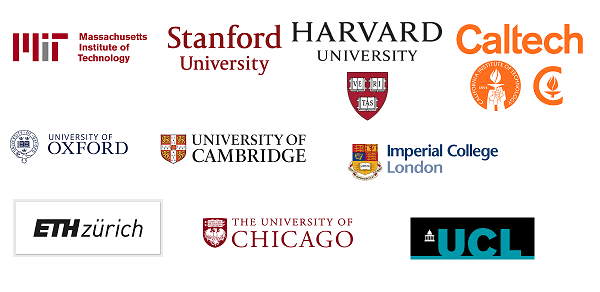UK’s Oxford University is heading for a decade long, uninterrupted number One position on The Higher Education (THE) global ranking. It has been in that position for the eight year running with its first position in the 2024 ranking now out.
In the 2024 ranking, it has even distanced the gap between it and its competitor, Cambridge University, also in the UK and a neighbour of Oxford. Cambridge came out fifth in this current ranking.
 All top American universities such as Harvard and MIT are also pushed down farther and their place taken by Stanford University in California at last. MIT is now third position and Harvard fourth. It will be interesting to see how long Stanford lasts in No. 2 position unlike MIT which colonised that position for quite some time.
All top American universities such as Harvard and MIT are also pushed down farther and their place taken by Stanford University in California at last. MIT is now third position and Harvard fourth. It will be interesting to see how long Stanford lasts in No. 2 position unlike MIT which colonised that position for quite some time.
California Institute of Technology (Caltech) and the Imperial College London are running neck-to-neck, Caltech being No. 7th while Imperial is No. 8th Hitherto, Imperial used to be referred to as the MIT of Europe. Might that be changing to Caltech of Europe? In other words, is it more of a replica of MIT or of Caltech?
University of California at Berkeley has also entered the global top ten in this ranking while Yale University has displaced the University of Chicago which has colonised the No. 10 position for a very long time, though not uninterrupted. For a long time, the University of Chicago was regarded as where Sociology is taught in the Western world. One cannot recall the big name in Sociological Theory who was at the University at some point.
What is interesting about the top 10 in the current ranking is how these universities are concentrated around California in the US, the District of Columbia, Oxfordshire and Cambridgeshire in the UK, meaning that much of the theories, concepts, models and practices that rule the world come from just the way of knowing peculiar to these sites of knowledge production. What kind of decolonial practice can reverse this epistemological hegemony?
Not if the next batch are not far away anyway. ETH Zurich has been pushed out of the top 10 bracket but it still has a powerful presence. Tsinghua University is the first non-Western university to enter the list at the 12th while another Chinese university – Peking – is on the 14th position.
The University of Pennsylvania, Columbia, University of California at Los Angeles (UCLA) and the National University of Singapore form the next layer of top tier global universities. They are followed by Cornell (at 20th position), University of Toronto and University College London. All these are in the top 25 bracket, meaning that the University of Edinburgh in Scotland is about the ex-top 20 that was successfully pushed to 30th position.
There is a category of universities that have been very remarkable in terms of game changing strides. They include the University of Melbourne, British Columbia, McGill, Manchester, LSE, King’s College London, New York University, University of Washington, Northwestern University, University of Tokyo, University of Texas @ Austin, University of Sydney, Australian National University, LMU in Munich and the University of Queensland. Except the University of Queensland which was pushed to 70th position, most of these have not gone too far up or down from where they have been in the past.
 What might surprise many observers is the entry of the Catholic University of Ku Leuven, the University of Fudan in China and the Karolinska Institute into this bracket in this ranking. The universities of Leiden and that of Groningen, all in Netherland, have been pushed down this time, though not terribly. So also has otherwise strong University of Bristol in the UK as well as the University of Minnesota, Copenhagen, Warwick, Emory and Uppsala.
What might surprise many observers is the entry of the Catholic University of Ku Leuven, the University of Fudan in China and the Karolinska Institute into this bracket in this ranking. The universities of Leiden and that of Groningen, all in Netherland, have been pushed down this time, though not terribly. So also has otherwise strong University of Bristol in the UK as well as the University of Minnesota, Copenhagen, Warwick, Emory and Uppsala.
As usual the University of Cape Town in South Africa makes a case for Africa at 167, much, much earlier than a crack UK university such as the University of Durham at 174 and even the University of St Andrews at 193. What that means is that no universities from Egypt or Nigeria or any other African country made the global top 200 other than South Africa. it is debatable if many African countries can enter that bracket when criteria such as student/staff ratio, citation and international student component of the university population.
Nigeria is the other African country from where many universities can easily enter the bracket. Nigerian universities do not have the low population that keeps some universities from the bracket. If Nigerian universities are well handled, they will meet the international student component criteria. As things are, it is unlikely that is possible without a thorough going re-organisation.
Until then, it is still a US, UK, China, Canadian, Singaporean world or North America, Europe and Asian world!




























